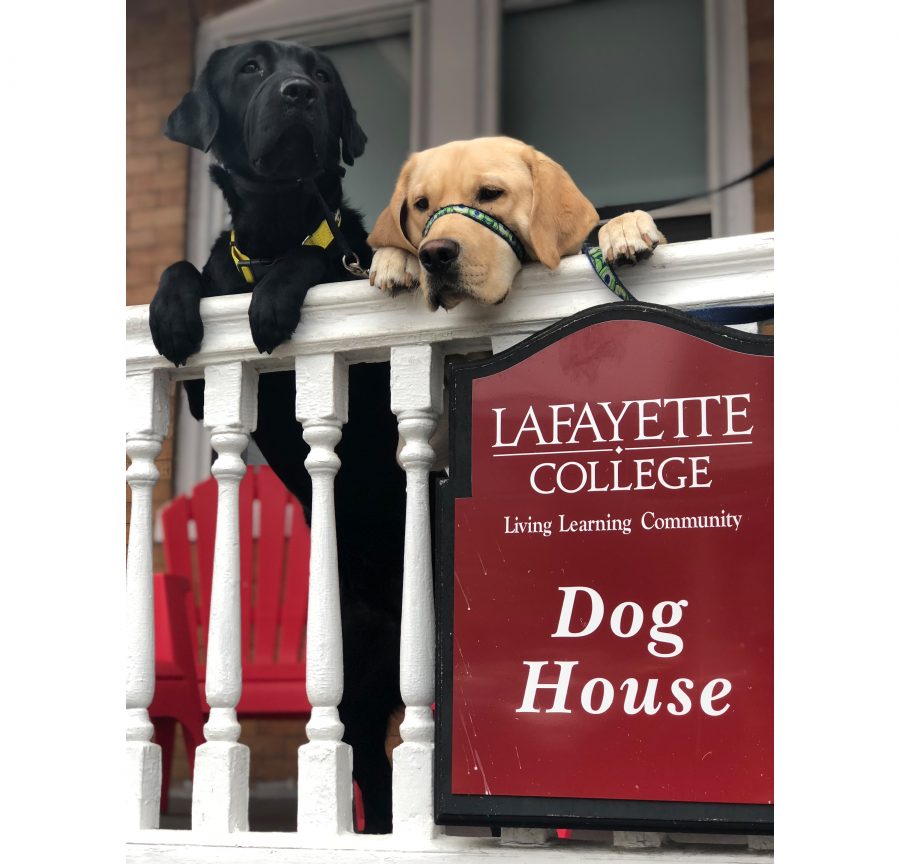From food to emergency veterinary visits, taking care of an animal is expensive, and the residents of the dog house have started a GoFundMe to help cover the costs of Moby and Stuart, the two service dogs they’re raising.
The fundraiser started Feb. 11, with a current sum of $225. The goal is $2,000.
“An unexpected trip to the vet earlier this semester for one of the dogs made us realize that we should have an emergency fund,” Dog House advisor and English professor Bianca Falbo wrote in an email, discussing what prompted the Dog House to set up the fundraising page.
“The one emergency visit we had was due to the dog eating one piece of gum and this [cost] us over $400…They did tell us that it could have been upwards of $1000 when we first called,” president of the Dog House Sydney Crowe ’19 said.
As a Living Learning Community (LLC) at Lafayette, the Dog House gets a monthly budget of $300 per semester. However, due to school rules about the allocation of funding, at first it seemed like the Dog House would be on their own for getting the dogs food.
“We went and spoke with [Residence] Life to see if they would approve us to buy dog food with the budget. We explained that the cost of food is not covered…and that we would be paying for it ourselves,” Crowe said.
Lafayette has since covered the cost of feeding the service dogs, which Crowe estimates to be about $300 per semester. However, the LLC is still responsible for buying toys, beds and collars for the now two, and last year three, dogs in the house.
Canine Partners for Life, the parent organization that Dog House partnered with, sponsors the dogs, supplying leashes and gentle leaders for the puppies last year. Additionally, they contribute the costs of routine visits to the veterinarian, Dog House resident Sophie Deignan ’19 said. All other expenses, however, come out of the pockets of residents.
“Now that we kind of see that the program is going to continue on…and we’ve had over 20 applications for 6 positions…our goal is to…raise $2,000,” Crowe said.
“There is a ‘natural’ expansion each year as new members undergo training and move into the house, and former residents living elsewhere continue to help. I think it’s terrific that veteran [Dog House] volunteers are always helping to mentor new volunteers,” Falbo wrote in an email.
Crowe and Deignan both expressed concerns with affording any possible needs in the future that may come up with their dogs.
“We want to make sure that we don’t ever need to worry about making sure the dogs are taken care of,” Deignan said.
Crowe said that since the LLC is not a recognized club, there is no pathway to get more money from the school through organizations such as student government. Because of this, the group is currently considering registering as a club to be able to make use of school funds in the future.
The Dog House has accepted six members for next year, and during their next round of training next semester they are hoping to receive new puppies.





















































































































